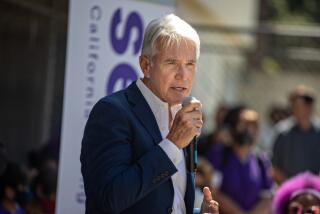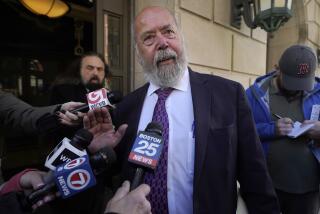Lee’s Release Hearing Should Be Open to Public, Court Rules
- Share via
DENVER — A hearing to determine whether nuclear scientist Wen Ho Lee should be kept behind bars until his trial will be open to the public, a federal appeals court ruled Friday.
The U.S. 10th Circuit Court of Appeals granted part of a request from Associated Press that the hearing Monday be open. The court said only proceedings dealing with sensitive information will be held behind closed doors.
The court initially said the hearing would be closed for security reasons. The petition Friday said closure could be justified only to protect a specific and compelling state interest and if no less restrictive means are available to protect that interest.
“We think it’s important for the public to know as much as possible about the government’s reason for opposing bail in this highly publicized case,” said Julie Aicher, chief of AP’s Albuquerque bureau.
Lee, 60, is accused of downloading restricted material about nuclear weapons to unsecured computers and tapes while working at Los Alamos National Laboratory. His trial is set for Nov. 6, and he could face life in prison if convicted. He has been in solitary confinement since his arrest last December.
Federal prosecutors contend that Lee should remain in jail before his trial, saying he still poses “irreparable harm” to the country.
Lee’s lawyers have filed two motions seeking his release pending the trial. The U.S. attorney’s office in Albuquerque filed a response late Thursday, saying Lee’s claim that he will suffer significant harm by remaining jailed “does not overcome the potential irreparable harm to the United States” posed by his release.
U.S. District Judge James Parker, who signed Lee’s release on $1-million bail last week before the 10th Circuit Court stayed his order, had set strict conditions for his release, including electronic monitoring and restrictions on travel.
Although Lee insists the conditions are sufficient, prosecutors said Lee still could pass on the tapes or communicate their contents directly or through intermediaries.
More to Read
Sign up for Essential California
The most important California stories and recommendations in your inbox every morning.
You may occasionally receive promotional content from the Los Angeles Times.













